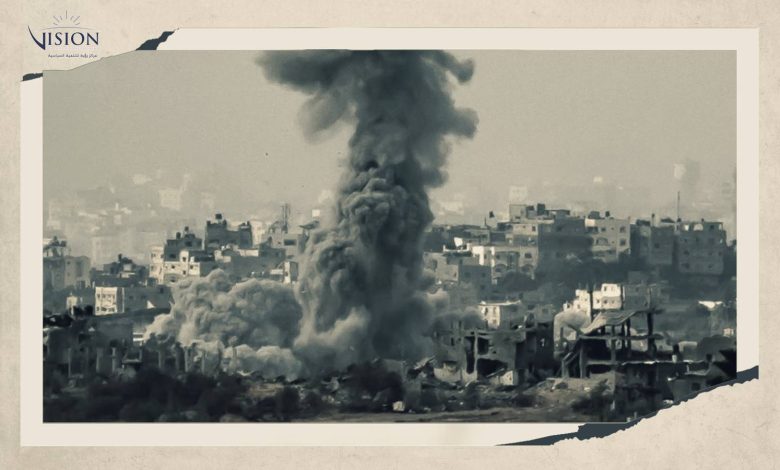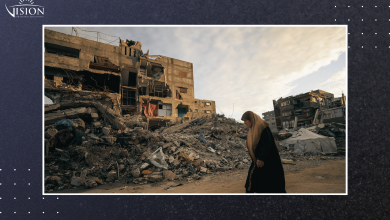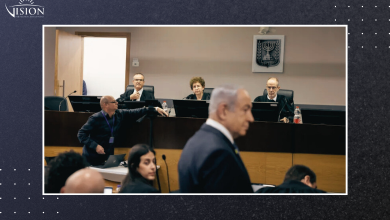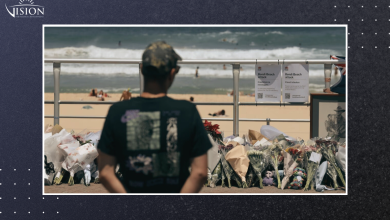The War on Gaza: Implications for Palestinians and Israelis

Observers and analysts concur that the events of October 7, 2023, and the subsequent conflict in the Gaza Strip, represent a significant juncture in the Palestinian-Israeli conflict, not merely leaving immediate impacts but also shaping the trajectory for years to come.
In the aftermath of over 130 days of Israeli aggression on the Gaza Strip, the Vision Center for Political Development and Al Jazeera Net sought to explore the perspectives of various analysts and experts to understand the multifaceted implications of the conflict on Gaza.
The exploration was structured around pivotal inquiries:
- In what ways might this conflict influence the political future of Palestinians?
- Has the conflict reidentified the roles of various actors within the arena?
- How might the developments of conflict affect the internal Israeli landscape and the political governance structure? Furthermore, has the conflict bolstered the concept of resistance within the Palestinian public sphere?
The perspectives of experts can be extracted as follows:
- The resilience of the resistance and the Palestinian community will decisively shape the political and military outcomes of the war.
- It is imperative for Palestinian actors to capitalize on this historic opportunity to unify and invest in the resilience of the Palestinian people.
- The Palestinian political map is poised for transformation. This has been influenced by shifts in power dynamics, the decline in Fatah and the Palestinian Authority’s influence, and the rise in the prominence of Hamas and Islamic Jihad, in which Hamas’s legitimacy is affirmed and attempts to marginalize it within the political equation is undermined.
- The impact of October 7 in diminishing the stature and image of the Israeli occupation is indelible, irrespective of the scale of massacres perpetrated by the occupiers.
- The prolongation and expansion of the war on Gaza to include the Rafah area will subject Israel to a compounded loss of its political reputation on the international stage.
- Israel’s attempt to replicate its West Bank model in Gaza, enticing Arab states to finance reconstruction in exchange for implicit regional normalization, is evident.
- The aftermath of the war is expected to usher in a transformation in Israeli societal structure or, at the very least, in its perception, mirroring the impact of the first Intifada, which significantly altered Israeli-Palestinian relational dynamics, highlighting the occupation’s vulnerability to insecurity and instability.
- The war’s fallout will likely lead to a reshuffling of Israeli military and political leadership and impeding their ability to realize their envisioned futures.
- Additionally, a severe blow has been dealt to the extreme right, side by side with the American keen on weakening Netanyahu to facilitate an internal Israeli shift, viewing him as a hindrance to the U.S. vision for the Middle East.
- A global consensus on the necessity of establishing a Palestinian state exists. Efforts and initiatives aimed at revitalizing the peace process may emerge, striving for a solution that grants Palestinians greater autonomy than mere self-governance, yet falls short of full statehood.





